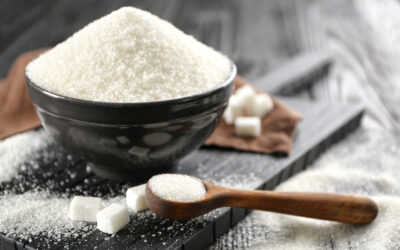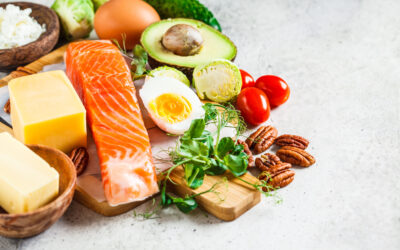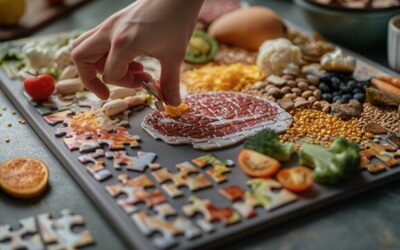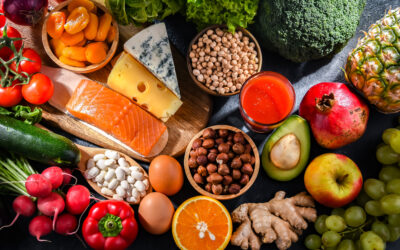Latest News

Dr. Johannes Coy on the Future of Sweetness and Health
Top Magazin Frankfurt recently interviewed our founder, Dr. Johannes Coy, about how his research into metabolism and the enzyme TKTL1 reshaped his understanding of sugar. He explains how conventional sugar can burden the body and why functional sugars such as tagatose...
Dr. Johannes Coy on the Future of Sweetness and Health
In Top Magazin Frankfurt, Dr. Johannes Coy shares how his TKTL1 research reshaped his understanding of sugar, leading to functional alternatives like tagatose, galactose, and mannose. His vision: sweets that taste indulgent while supporting real metabolic health.
Trehalose: Boost Your Cognitive Clarity
Trehalose has been used for decades by different plants and insects to protect proteins in their cells, especially in extreme environmental conditions. Recent studies show we can use trehalose for improving cognitive function and clarity.
Tagatose: Managing Diabetes with a Low-Glycaemic Sugar
Diabetes affects millions globally, making blood sugar management crucial. Tagatose, a natural sugar with a low glycaemic index of 3, offers a safe alternative to traditional sugar. It helps reduce blood sugar spikes, supports weight management, and provides antioxidant and prebiotic benefits. Unlike regular sugar, tagatose allows individuals to enjoy sweetness without the negative effects. Discover how Dr Coy’s sugar mixtures can help maintain steady energy levels while managing diabetes effectively.
The Impact of the Ketogenic Diet on Cancer Metabolism
Glioblastoma (GBM) is an aggressive brain cancer with limited treatment options. While traditional approaches like surgery, radiation, and chemotherapy offer modest benefits, emerging research highlights the ketogenic diet as a promising complementary therapy. By targeting the altered energy metabolism of GBM cells—known as the Warburg Effect—the ketogenic diet may provide a new avenue for improving patient outcomes.
The Liver’s Transformation of Fructose: A Key to Tumor Growth
Recent research has unveiled a surprising link between dietary fructose and tumor growth. While cancer cells can’t metabolize fructose directly, the liver plays a pivotal role in transforming fructose into nutrients that fuel tumor proliferation.
Ribose: Fuel Your Body with an ATP-Building Sugar
In our fast-paced lives, many of us feel tired and struggle to recover quickly after exercise. Ribose, a natural sugar, can be a great natural remedy for this. The body produces ribose; it’s a key component of ATP (adenosine triphosphate) and plays a vital role in the body’s energy production, enabling cells to store and release energy efficiently.
Isomaltulose: The Secret to Sustained Energy
Isomaltulose is a special kind of carbohydrate that doesn’t spike your blood sugar levels. Isomaltulose is a disaccharide, meaning it’s made up of two sugar molecules – in this case glucose and fructose joined together.
Isomaltulose: The Inflammation-Reducing Sugar
Chronic inflammation is a major health problem, contributing to various lifestyle diseases including diabetes, cardiovascular disease, arthritis, and cancer. In fact, over half of all deaths are attributed to inflammation-related diseases. It’s important to reduce inflammation to prevent and protect against disease and maintain a good level of overall health.
Tumour Tissue Acidity: Cancer Aggression and Treatment Resistance
Acidosis is a condition in which the body’s tissues become excessively acidic due to a drop in pH levels. Within tumour tissue, acidosis accelerates tumour progression and can cause cancer cells to become resistant to treatment. It promotes several mechanisms that lead to invasiveness, metastasis, and resistance to immune responses and chemotherapy in cancer cells.
Sugar, HPV, and Cervical Cancer: The Dr Coy Principle in Cancer Management
Human papillomavirus (HPV) infections are responsible for over 99% of precancerous cervical lesions, making them a significant threat to public health. Among the many strains of HPV, types 16 and 18 are most common, accounting for more than 70% of cervical cancer cases worldwide.
Galactose: Why Your Brain Needs Sugar
From an evolutionary perspective, the human brain surpassed other animals with the development of complex thought processes. We upgraded our intellectual abilities while developing social and behavioral constructs that override animal instincts.
Galactose: A Fat Burning Sugar
Galactose offers unexpected and highly beneficial properties that actively encourage the body to use fat. The fat-burning properties of galactose promote oxidation, which essentially ‘forces’ the cell powerhouses (mitochondria) to use fat and oxygen to make fuel.
This means that by just adding galactose to your food, it will push your body into fat burning mode.
Premature Ageing: The Importance of Dietary Choices
The anti-ageing industry often overlooks the root causes of accelerated ageing; hence consumers are bombarded with endless creams, surgeries, and injectables. Understanding the cellular impact of sugar is key to making dietary decisions that support skin health and reduce signs premature ageing.
Tagatose Is Not An Added Sugar: FDA Label Overturned
A legal win for tagatose could revolutionise healthier sugar alternatives.
U.S. constitutional lawyer Jonathan Emord recently achieved a significant legal victory against the U.S. Food and Drug Administration (FDA).
The Impact of the Mediterranean Diet on Brain Aging
A new study reveals that nutrients commonly found in the Mediterranean diet are crucial for slowing down brain aging.
The Power of Cancer Nutrition: An Interview with Sarah Blumenfeld
After her third cancer diagnosis, and a fatal prognosis of only 6 months, Sarah Blumenfeld decided to take matters into her own hands.
















